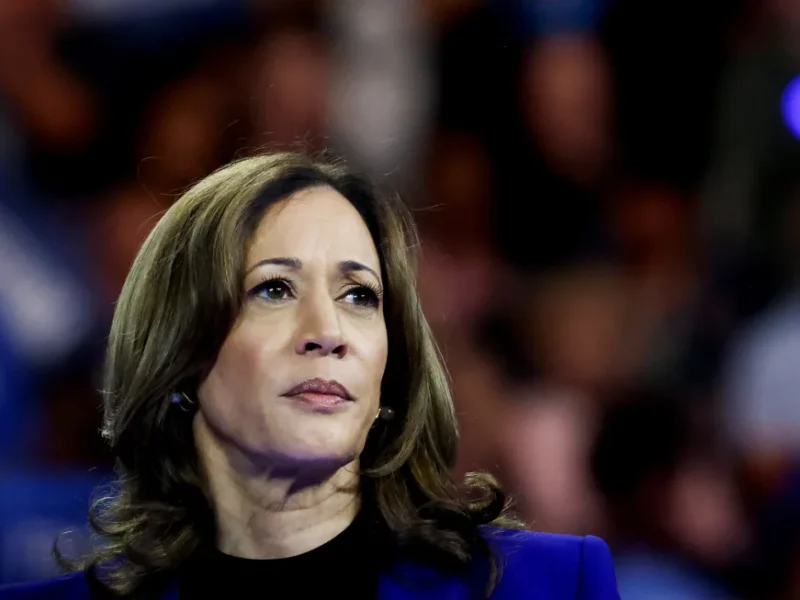The federal government often revises economic data, but the recent correction by the Bureau of Labor Statistics (BLS) was unusually large, revealing that the U.S. economy created 818,000 fewer jobs than initially reported over the past year.
This adjustment arrives at a critical political juncture, as Vice President Kamala Harris, now the Democrats’ presidential nominee, aims to reshape public opinion on the Biden administration’s handling of the economy.
The White House, alongside Harris, has faced challenges in persuading the public that despite ongoing concerns about the U.S. economy, things are improving, with inflation under control and the labor market largely intact.
President Joe Biden, during the Democratic National Convention on Monday, claimed to have created 16 million new jobs, rounding up from the actual figure of 15.8 million. However, this statement no longer holds after the BLS report.
Still, the creation of 15 million jobs is a significant achievement, far surpassing the nearly 7 million jobs added during Donald Trump’s presidency after accounting for pandemic-related losses.
Harris has brought new momentum to the presidential race. In a recent ABC News/Washington Post/Ipsos poll, she led Trump nationwide among registered voters. However, Trump holds a 9-point lead on the top two issues identified by Americans in that poll—economy and inflation.
According to Gallup polls from July, less than a quarter of Americans have rated the U.S. economy as good or excellent over the past year.
Any negative economic news in the coming months could potentially benefit Trump in the election.
The political debate over employment is increasingly involving issues of race.
Trump has asserted that many jobs created under Biden are going to undocumented immigrants, a claim CNN has debunked. However, there has been a rise in foreign-born workers compared to native-born workers recently, as noted by CNN’s Tami Luhby.
Trump has tried to create division among Democrats by alleging that undocumented and foreign-born workers are filling “Black” and “Hispanic” jobs, a point he made during the CNN presidential debate in June when Biden was still competing.
Michelle Obama addressed this issue in her DNC speech, suggesting that Trump feels threatened by her and her husband: “Two successful, educated, hardworking Black individuals.” She questioned who would inform Trump that the job he seeks might be one of those “Black jobs.”
Anticipating a reduction in interest rates.
Economists are expecting positive news before the election, with the Federal Reserve indicating a possible interest rate cut in September. This anticipated cut has already lowered mortgage rates, and could further decrease borrowing costs, potentially enhancing the job market and overall economy.
Distinct economic strategies.
If elected, Trump plans to impose tariffs on many imports, likely raising costs but potentially boosting domestic production. He also aims to make expiring tax cuts permanent and introduce additional tax cuts.
In contrast, Harris would extend tax cuts for most Americans but increase taxes on the wealthiest. She also proposes tax credits for families with children and first-time homebuyers, though these measures could be costly.
Neither candidate has a substantial plan for addressing the growing national debt.
Why is the revision of job data occurring at this moment?
Each year, the BLS revises data from its monthly payroll survey and aligns the March employment figures with those from the Quarterly Census of Employment and Wages program.
This year’s preliminary data reflects the largest downward revision since 2009, indicating that the labor market was not as robust as initially reported, though job growth remains historically strong. The data will be updated again and finalized in February.
Trump accused the administration of “manipulating job statistics,” but there’s no evidence to support this claim. A genuine attempt to distort the data would likely revise figures upward, not downward. According to Wallace, this revision is a routine annual process, not an effort by the Biden administration to obscure negative economic news.
Is this revision significant for the economy?
Comparing job growth between Trump and Biden is challenging due to the Covid-19 pandemic’s impact, which still puzzles economists. RSM’s Joe Brusuelas noted that post-shock periods often have data noise, similar to the 2009 BLS data adjustments after the Great Recession. While this revision doesn’t significantly alter the economic outlook or risks, it might heighten overall economic concerns.











